Search
Search Results
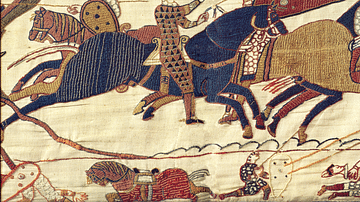
Definition
Odo of Bayeux
Odo of Bayeux (d. 1097 CE) was the bishop of Bayeux in Normandy and half-brother of William the Conqueror (r. 1066-1087 CE). After the Norman conquest of England in 1066 CE, Odo was given vast Anglo-Saxon estates and made, as the Earl of...
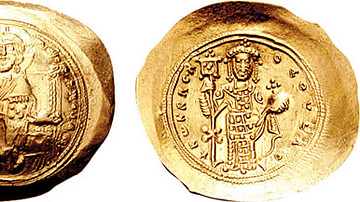
Definition
Constantine X Doukas
Constantine X Doukas was the ruler of the Byzantine Empire from 1059 to 1067 CE. During his reign, the Byzantine Empire was attacked by emerging enemies on all sides, including the Normans in Italy and the Seljuk Turks in Armenia and Anatolia...

Definition
Siddhartha Gautama
Siddhartha Gautama (better known as the Buddha, l. c. 563 - c. 483 BCE) was, according to legend, a Hindu prince who renounced his position and wealth to seek enlightenment as a spiritual ascetic, attained his goal and, in preaching his path...

Definition
Elizabethan Theatre
Elizabethan theatre, sometimes called English Renaissance theatre, refers to that style of performance plays which blossomed during the reign of Elizabeth I of England (r. 1558-1603) and which continued under her Stuart successors. Elizabethan...
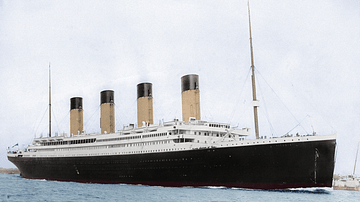
Definition
RMS Titanic
The RMS Titanic was a White Star Line ocean liner, which sank after hitting an iceberg on its maiden voyage from Southampton to New York on 15 April 1912. Over 1,500 men, women, and children lost their lives. There were 705 survivors. In...
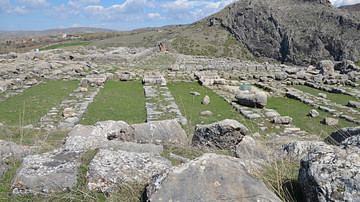
Definition
Bronze Age Collapse
The Bronze Age Collapse (also known as Late Bronze Age Collapse) is a modern-day term referring to the decline and fall of major Mediterranean civilizations during the 13th-12th centuries BCE. The precise cause of the Bronze Age Collapse...
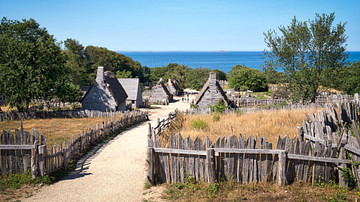
Definition
Plymouth Colony
The Plymouth Colony (1620-1691) was the first English settlement in the region of modern-day New England in the United States, settled by the religious Separatists known as the “pilgrims” who crossed the Atlantic Ocean on the Mayflower in...

Definition
Scientific Method
The scientific method was first used during the Scientific Revolution (1500-1700). The method combined theoretical knowledge such as mathematics with practical experimentation using scientific instruments, results analysis and comparisons...

Definition
Frédéric Chopin
Frédéric Chopin (1810-1849) was a Polish composer and virtuoso noted for his solo piano music. Chopin's work helped make the piano the most popular musical instrument of the 19th century. One of the great composers of Romantic music, Chopin's...

Definition
Germ Theory
The germ theory, which emerged in the late 19th century, demonstrated that microscopic germs caused most human infectious diseases. The germs involved included bacteria, viruses, fungi, protozoa, and prions. Louis Pasteur (1822-1895), a French...